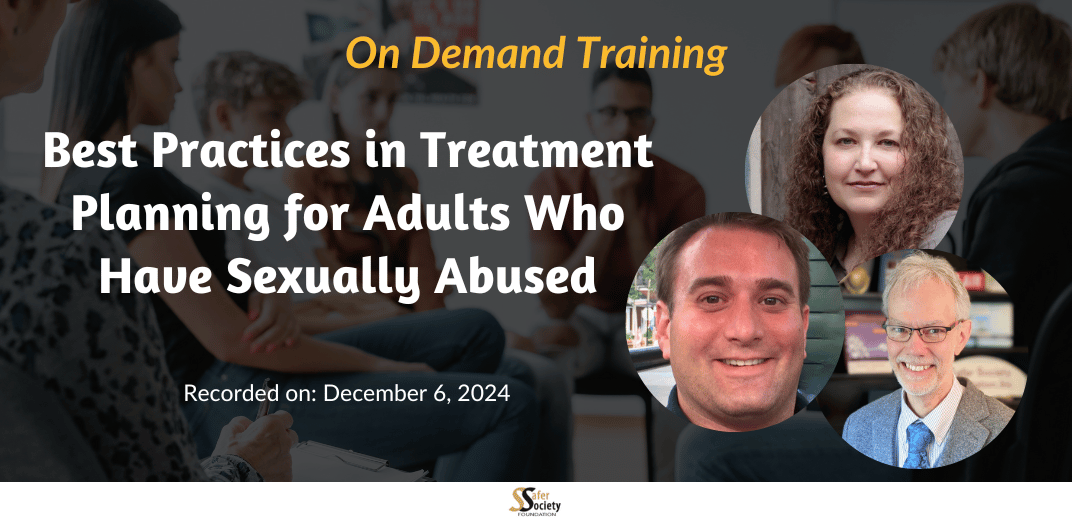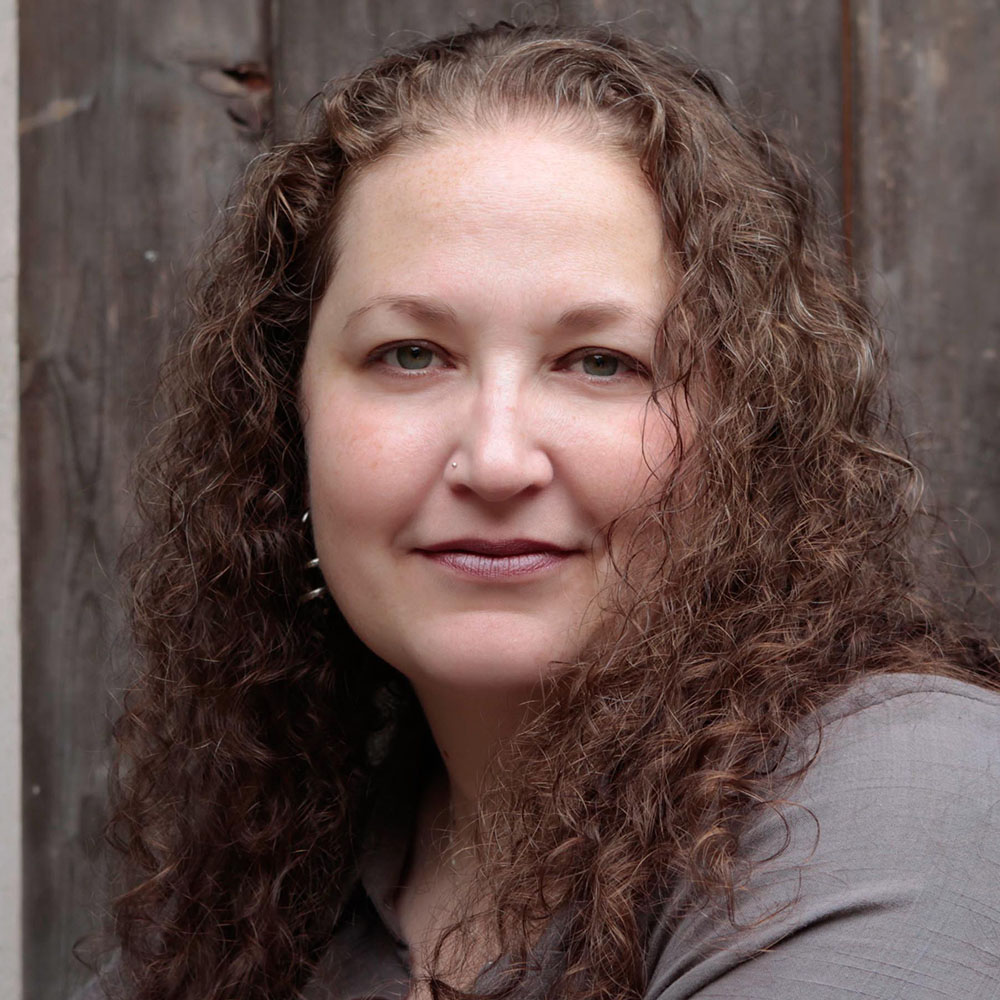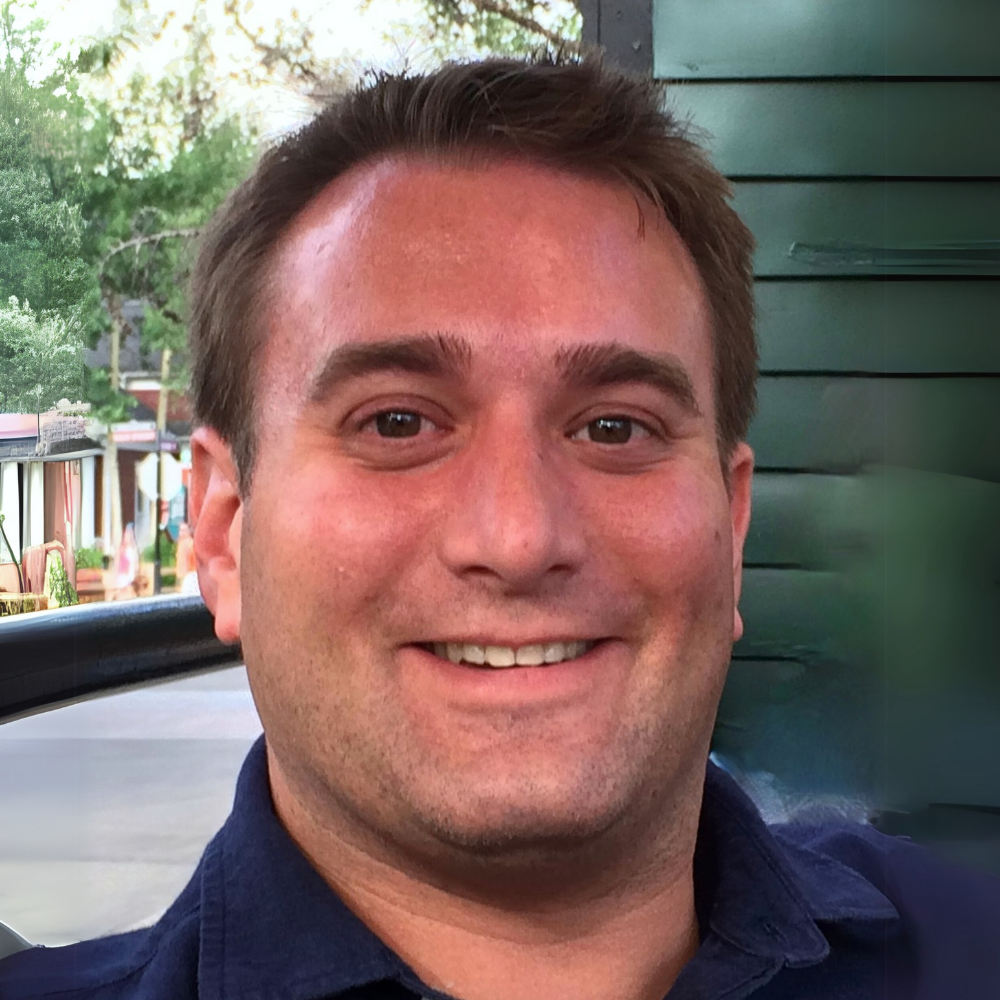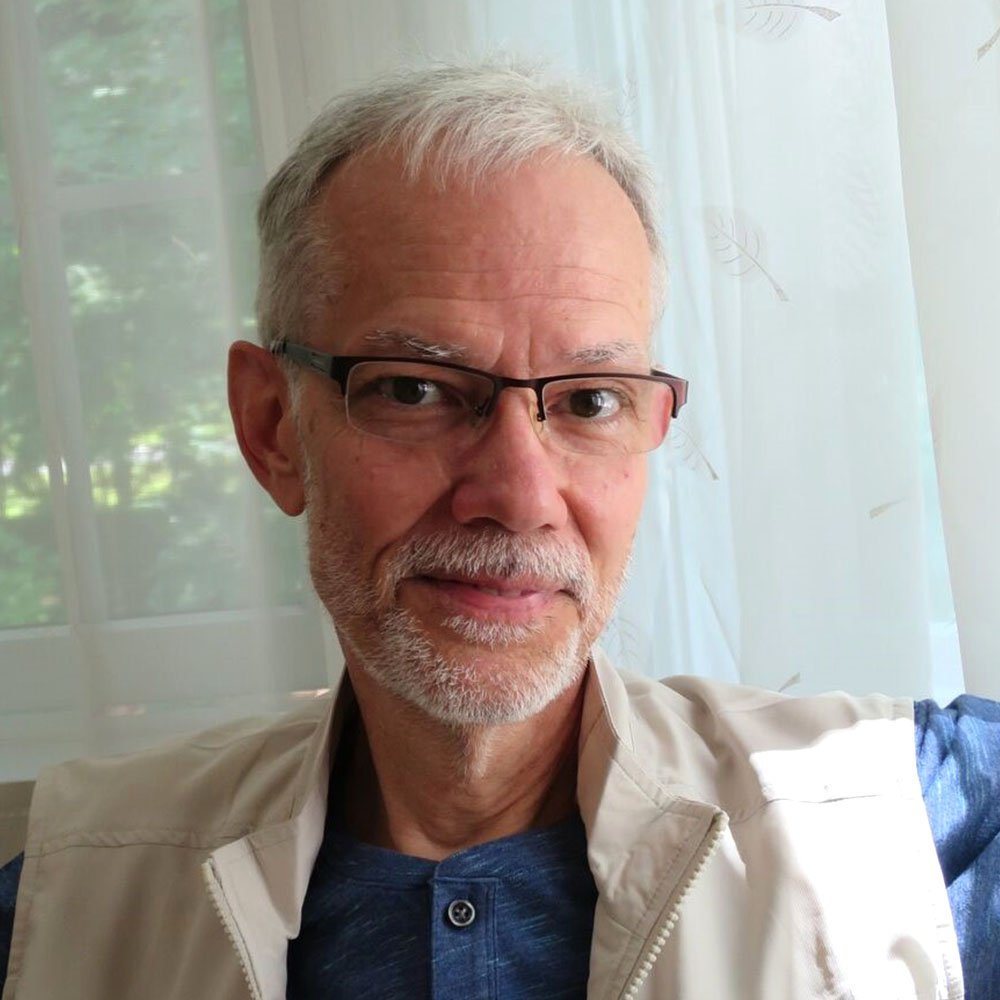
Best Practices in Treatment Planning for Adults Who Have Sexually Abused
Already purchased an On Demand training?
Click here to access your Safer Society On-Demand Training Center account.
The code of ethics of every mental health profession emphasizes the importance of treatment planning in ensuring successful treatment. However, for professionals who treat people who have harmed others, training on the process of treatment planning is minimal. Due to this lack, newer practitioners enter the profession with unanswered questions. For example, what is the best way to customize treatment when using empirically supported protocols? How does treatment planning occur in settings where each client gets similar treatment?
 This training brings together three established experts to provide over-arching guidance and practical tips for establishing treatment plans. They discuss common pitfalls that can occur in treatment programs and offer insights on navigating complex scenarios.
This training brings together three established experts to provide over-arching guidance and practical tips for establishing treatment plans. They discuss common pitfalls that can occur in treatment programs and offer insights on navigating complex scenarios.
This training examines treatment planning from many angles, including:
- Approach- versus avoidance-based goals
- Differentiating goals and objectives
- The therapeutic alliance
- Risk assessment and its relationship to treatment planning
- The effects of trauma and adversity
- The impact of race and culture
- What is known about the effects of treatment dosage
- The importance of approach goals
- The role of adversity in creating dynamic risk
- Risk factors as barriers to achieving “good life goals”
- Working in collaboration with larger systems, such as criminal justice
- Treatment planning for clients who deny their offenses of record
The presenters aim to equip professionals with the tools to develop individualized treatment plans that address the unique needs and risks of clients who have harmed others, ultimately enhancing the effectiveness of their interventions.
1) Explain the role of treatment planning in interventions with people who have sexually abused.
2) Describe how dynamic risk assessment can inform treatment plans.
3) Create treatment plans using approach goals.
4) Recognize how trauma and adversity create treatment needs that can be addressed in treatment, whether through trauma treatment or trauma-informed care.
Audience
This training is primarily for professionals who work directly with adults who have sexually abused others. This includes mental health counselors, social workers, clinical psychologists, and forensic experts.
Content Level
Who's Presenting

Katie Gotch, LPC, CCSOT, ATSA-F
Katie Gotch is a Safer Society Collaborator. She has worked in the field of sexual abuse prevention for well over twenty years as a clinician, evaluator, trainer, educator, and in the development of evidence-informed public policy. Katie currently maintains a private practice, Integrated Clinical & Correctional Services, which provides specialized clinical and consultation services related to individuals with sexual behavior problems and other forms of abusive/violent behavior. She frequently provides training to correctional agencies, treatment providers, policy makers, and other community partners on sexual abuse specific assessment, management and treatment; static and dynamic risk; public policy; public/media engagement; and related topics. She is a certified Static-99R/STABLE & ACUTE-2007 trainer and a local ODARA trainer. Katie has a long history of public policy and board involvement; She has served as the Public Policy Executive Board Member for ATSA, as a Board Member for NPEIV, and as the Policy Advisor for OATSA.

Seth Wescott, LMLP, ATSA-F
Seth Wescott is a Licensed Master’s Level Psychologist and has been working with individuals with problematic sexual behaviors since 2002. He has worked in maximum security prisons for both adults and adolescents as well as various community-based settings. In private practice, Seth conducts pre-disposition and pre-adjudication psychosexual evaluations of adults and adolescents. He is heavily involved in public policy and provides consultation to policy makers and legislators. Seth is a Safer Society collaborator. He is an independent certified trainer for Static-99R, Stable-2007, and Acute-2007 risk assessments and an ATSA Fellow. Seth is a Professor of the Practice at the University of Kansas.

David Prescott, LICSW, ATSA-F
A mental health practitioner of 40 years, David Prescott is the Director of the Safer Society Continuing Education Center. He is the author and editor of 25 books in the areas of understanding and improving services to at-risk clients. He is best known for his work in the areas of understanding, assessing, and treating sexual violence and trauma. Mr. Prescott is the recipient of the 2014 Distinguished Contribution award from the Association for the Treatment and Prevention of Sexual Abuse (ATSA), the 2018 recipient of the National Adolescent Perpetration Network’s C. Henry Kempe Lifetime Achievement award, and the 2022 recipient of the Fay Honey Knopp Award from the New York State Alliance for the Prevention of Sexual Abuse and New York State ATSA. He also served as ATSA President in 2008-09. Mr. Prescott currently trains and lectures around the world. His published work has been translated into Japanese, Korean, German, French, Polish, and Southern Tutchone. He has served on the editorial boards of four scholarly journals.
